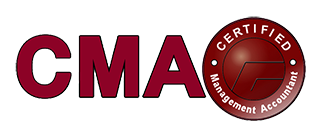Topic 6: Activity Based Cost Allocation Systems
This topic focuses on the principles of Activity Based Costing (ABC), which is shown as the response to the challenge of complexity. Aspects such as “volume”, “structural” and “introductory” costs are specifically considered. The differences between manufactured products and services are highlighted, and the question is asked whether such differences warrant a separate costing system for service industries. Other approaches to cost allocation, such as TDABC, are considered.
Topic 7: Customer Profitability Analysis
This topic moves the focus from analysis to action. Methods of finding profitable customers and products are considered, as is the area of account management and Customer Relationship Management (CRM). The topic also considers the impact of big data analytics and social networks on the company’s CRM, and how these have evolved into Social CRMs.
Topic 8: Process Control and Activity Based Management
This topic discusses the areas of process control and activity management; and shows how cost drivers obtained for cost allocations can be used as performance measures of process efficiency and effectiveness. Monitoring systems, and the concepts of frequency, timeliness and accuracy are also considered, especially in relation to white-collar departments.
Topic 9: Implementing Cost Analysis and Control Systems
This topic outlines the implementation stage of activity-based cost management systems. Behavioral aspects, especially in creating motivation are discussed. Long-term cost management models are also considered. The topic also considers the issues that arise when moving from ‘project’ to ‘steady state’; especially the factors that will ensure the long-term sustainability of a re-engineered ABC system.
Topic 10: Strategic Performance Management Systems
This topic looks at Strategic Performance Measurement Systems, especially the linking of financial control systems with process-based control systems. Some Key Questions to ask in the strategic refocusing of Performance Measurement Systems are discussed, and the recognition of frameworks such as the Balanced Scorecard in linking financial and strategic performance measures are specifically considered.
Topic 11: Environmental and Social Management Accounting
Environmental and Social Management Accounting [also known as Corporate Social Responsibility (CSR)] is changing the way organizations go about their business. This topic explores what ESMA is, and what it means for organizations, now and in the future. The need for integrated management accounting reports are discussed; and the impact of climate change and carbon emissions trading on cost and management accounting is specifically considered.
Topic 12: Strategic Governance and the Strategic Audit
This topic first overviews the different approached to corporate governance, which specifies the distribution of rights and responsibilities among different participants in the corporation, such as, the board, managers, shareholders and other stakeholders, and spells out the rules and procedures for making decisions on corporate affairs. The development of Enterprise governance systems, incorporating both structural governance and strategic governance are then compared and contrasted. Finally, it considers assurance issues using ‘leading’ rather than ‘lagging’ indicators, via the Strategic Audit.
